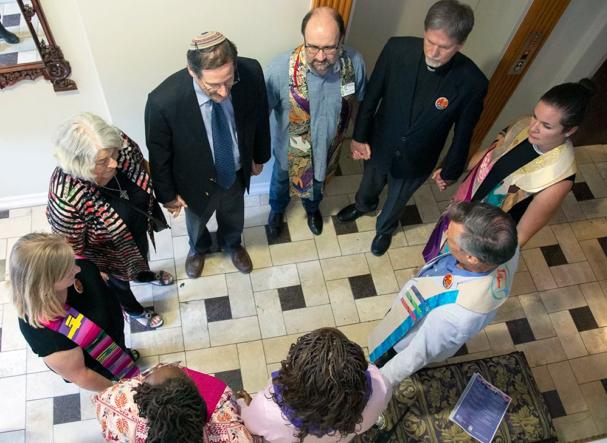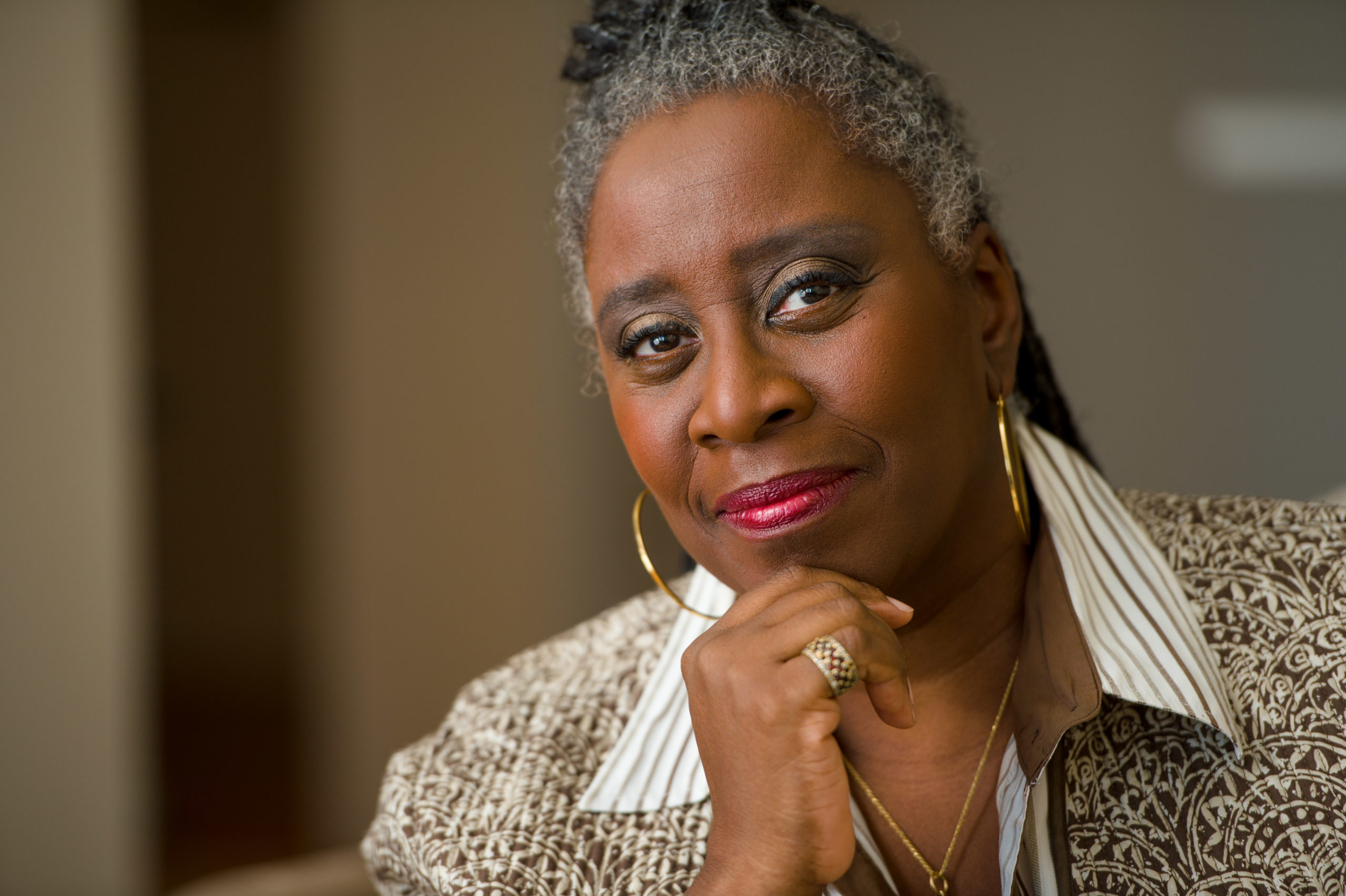Crossing the Threshold Together
May 6, 2022

“Let go and let God!” is often said in many religious traditions. In practical terms, how do we do that?
Many of us long to release our worries, fears, and anxieties but don’t know how. In this era of global, national, and perhaps personal chaos and crisis, for many people the need to “let go and let God” has become urgent.
Many religious practitioners believe that if they worship the God of their understanding, their worship, if done correctly, will automatically transcend them beyond the circumstances of their lives and provide a pathway to inner peace and release. I greatly appreciate such transcendent moments as part of my own spiritual journey. Such transcendent moments can be understood as liminal space.
Liminal comes from the Latin word limen meaning “threshold.” Liminal space is a place of entering and transition. Through worship, life as we know it is momentarily set aside, offering us the time and context to envision and even experience that which is between the “what was” and the “next.” Spiritual worship of or connection with that which is greater than ourselves provides an invaluable liminal space in which we are able to imagine our lives fuller and freer and more empowered than they might be.
The rituals and chants of spiritual practice facilitate connection with liminal space. Fasting, davening, praying and meditating with prayer beads, doing the sign of the cross, setting up prayer mats, seating ourselves on a meditation cushion, engaging in pilgrimage, baptizing and other ritual bathing, and so much more are ritualistic pathways into liminality. The preparations for entering the threshold are powerful and transformative and they show us what life can be. For example, many traditions use some form of deep breathing to open the doorway into liminal space; yet rarely do traditions teach followers how to breathe deeply and ways to incorporate it into daily living.
Because most of us have not been shown the tools to effectuate and incorporate into our daily living what we see, hear, feel, and know while in liminal space, we return to living our lives the best way we know how. The limitations of this are even greater in the lives of individuals who have experienced trauma.
We experience the world and ourselves in four ways: mind, body, spirit, and emotions. The interchange between these four ways of being, experiencing and knowing is commonly ignored. Most spiritual practice wonderfully engage body and spirit. Some traditions focus on the mind but overlook the body. And rarely do they engage the emotions in ways that help practitioners to process and understand what they are feeling. To live in the degree of inner peace, freedom, power, and joy most of us long for necessitates that these four ways of being are actively and intentionally integrated in our daily living.
Additionally, the teaching of most spiritual traditions is that if individuals worship the Divine correctly or pray faithfully enough, their life challenges will be alleviated. For example, “Your faith has made you whole” is a spiritual concept that is often used to shame or blame individuals who may be slow or unable to heal and recover from their trauma or loss. The consequence of this shaming and blaming is deeper emotional and spiritual crisis.
The religious landscape continues to undergo seismic shifts. Over the past two generations, the percentage of the U.S. population that identifies as “religiously unaffiliated” or “non-believer” has skyrocketed from 7% to 22%. Much of that shift is due to the growing gap between what organized religion is structured to provide and what growing numbers of people are seeking. While most religious institutions are structured to invite or require adherents to become members, in this era, such membership has a diminishing appeal for those under age 45. The shift in the religious landscape is further compounded by the loss in credibility of religious leaders resulting from various forms of spiritual abuse.
Despite the growing disfavor of organized religion, many individuals still long for a spiritual compass to help guide their lives. Practical spirituality provides a path to meet the needs of individuals whether they are: (1) not affiliated with a religious tradition but who identify as spiritual, (2) religiously affiliated and who regularly embrace spiritual wisdom from other traditions, (3) identify as interspiritual, and (4) religiously affiliated, who generally have not been embracing of other spiritual traditions yet whose emotional needs are not being adequately addressed by their religion.
Across these distinct groups, practical spirituality offers equal access, without the requirement of religious membership or conversion, to approaches rooted in rituals and wisdoms from diverse religious and spiritual traditions, integrative spiritual coaching, and interspiritual community. Practical spirituality equips us to cultivate what we gain from liminal spaces in ways to transform our daily living. In addition, as more of us connect with spirituality in this way, we can gain appreciation for other traditions and together we can transform our societies.
Congratulations to Interfaith America as you expand your vision of your service in the world that provides an important platform for personal and societal transformation.
Share
Related Articles
American Civic Life
American Civic Life

The Rev. Dr. Cari Jackson
The Rev. Dr. Cari Jackson is an emotional intuitive, spiritual midwife, and social healer. Using her exceptional spiritual gifts for almost 40 years, she has been able to help countless individuals harness and transform life-limiting narratives and unhealed traumas to profound embrace of peace, joyfulness, power, and unconditional love. She incorporates wisdoms from Ancestral, Buddhist, Christian, Hindu, Ifa, Jewish, and other spiritual traditions to connect deeply with broad audiences. As president of Excellent Way Consulting, Dr. Cari enhances the capacity of spiritual leaders and communities to support the thriving and dignity of all people across demographic and cultural differences. She has served as adjunct faculty at Union Theological Seminary and One Spirit Interfaith Seminary, where she has taught “The Christian Chase for Power” and “Ministry in Multicultural Contexts.” Dr. Cari holds a Ph.D. in Christian Social Ethics, Master of Divinity, Juris Doctor, and Bachelor of Arts in Psychology and Sociology. She is the author of five books including The Gift to Listen, The Courage to Hear; Love Like You’ve Never Been Hurt; and For the Souls of Black Folks; and contributing author for Sisters in Mourning.



